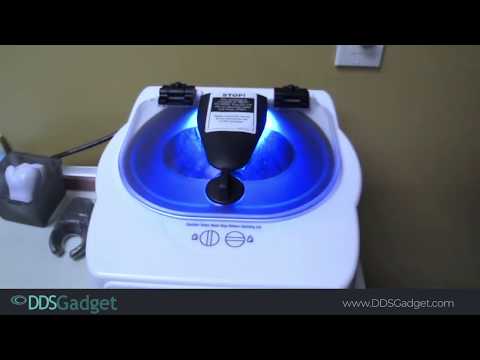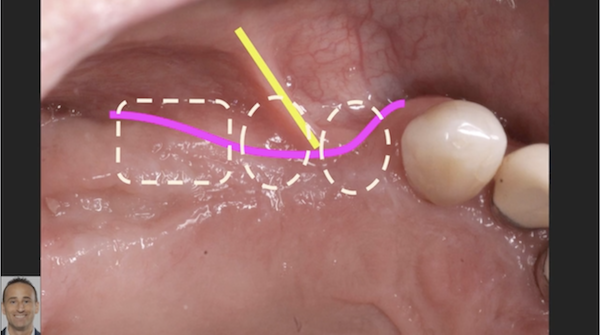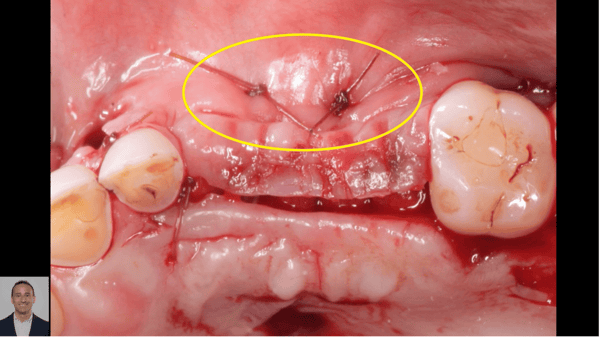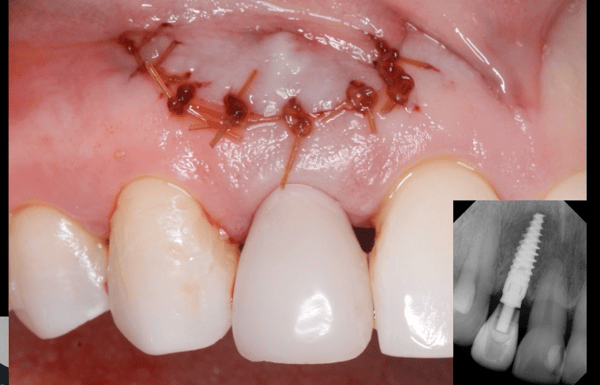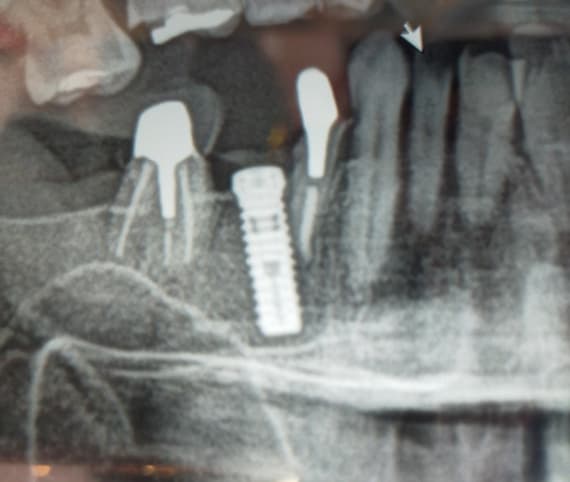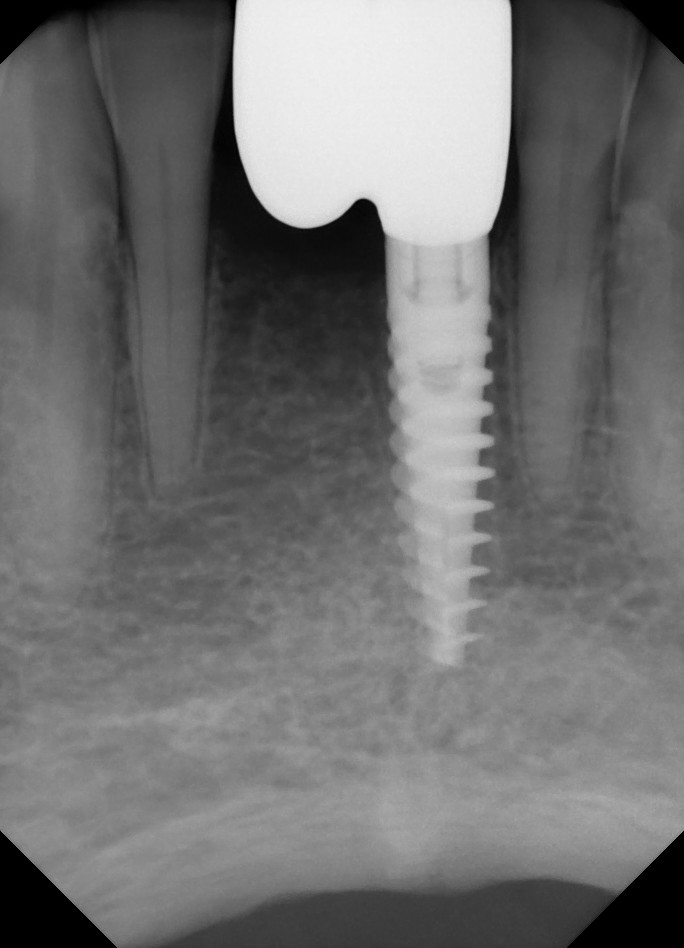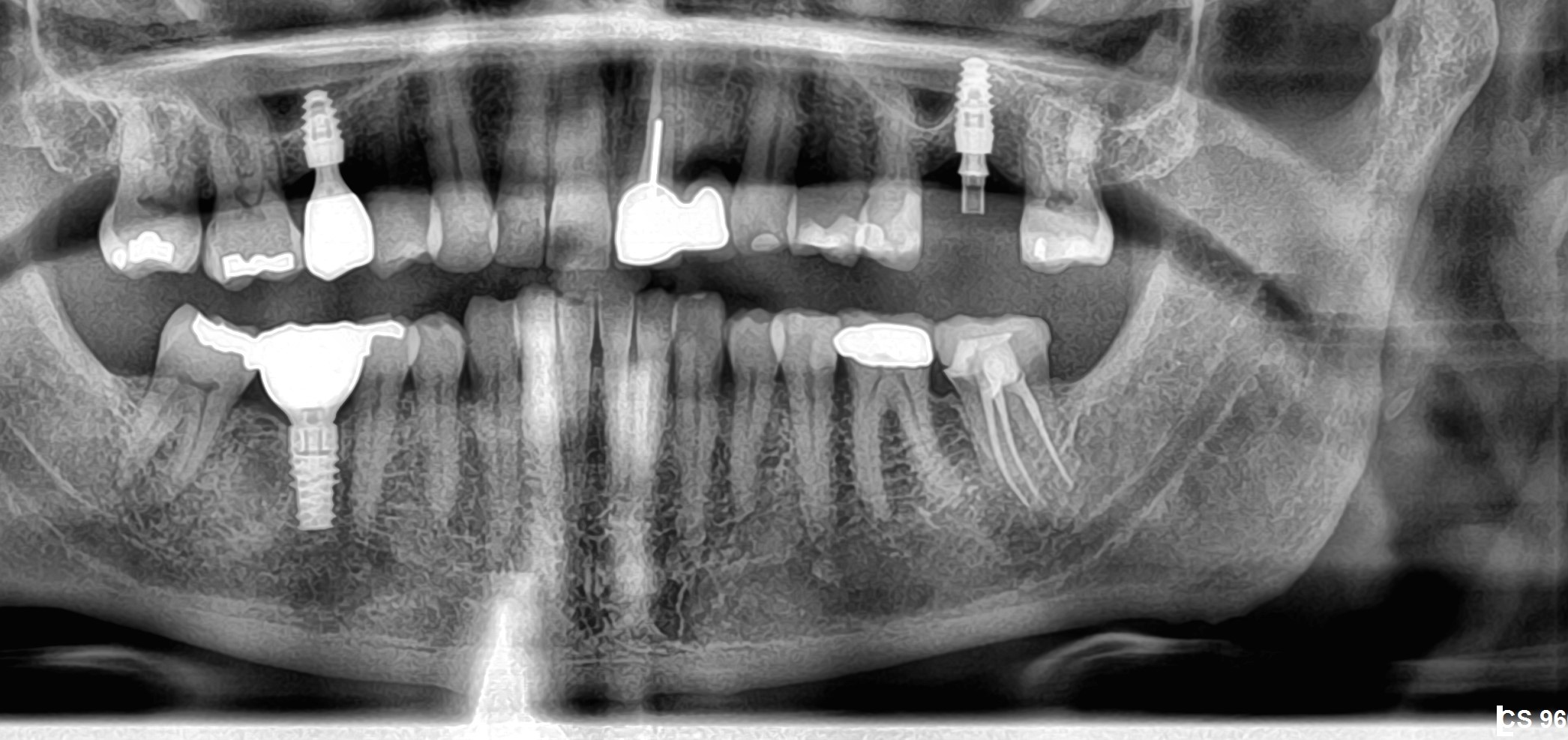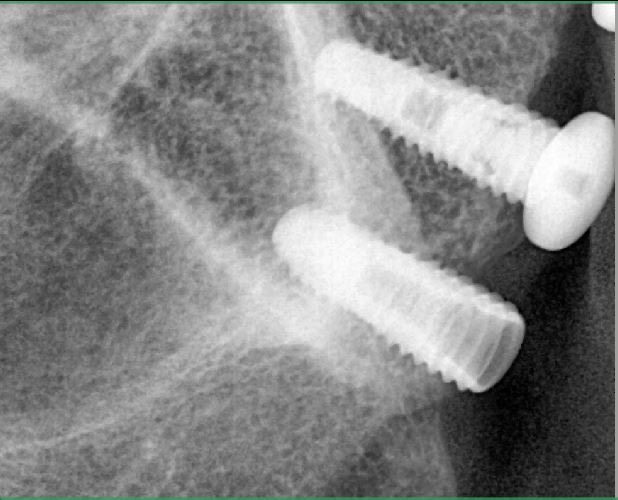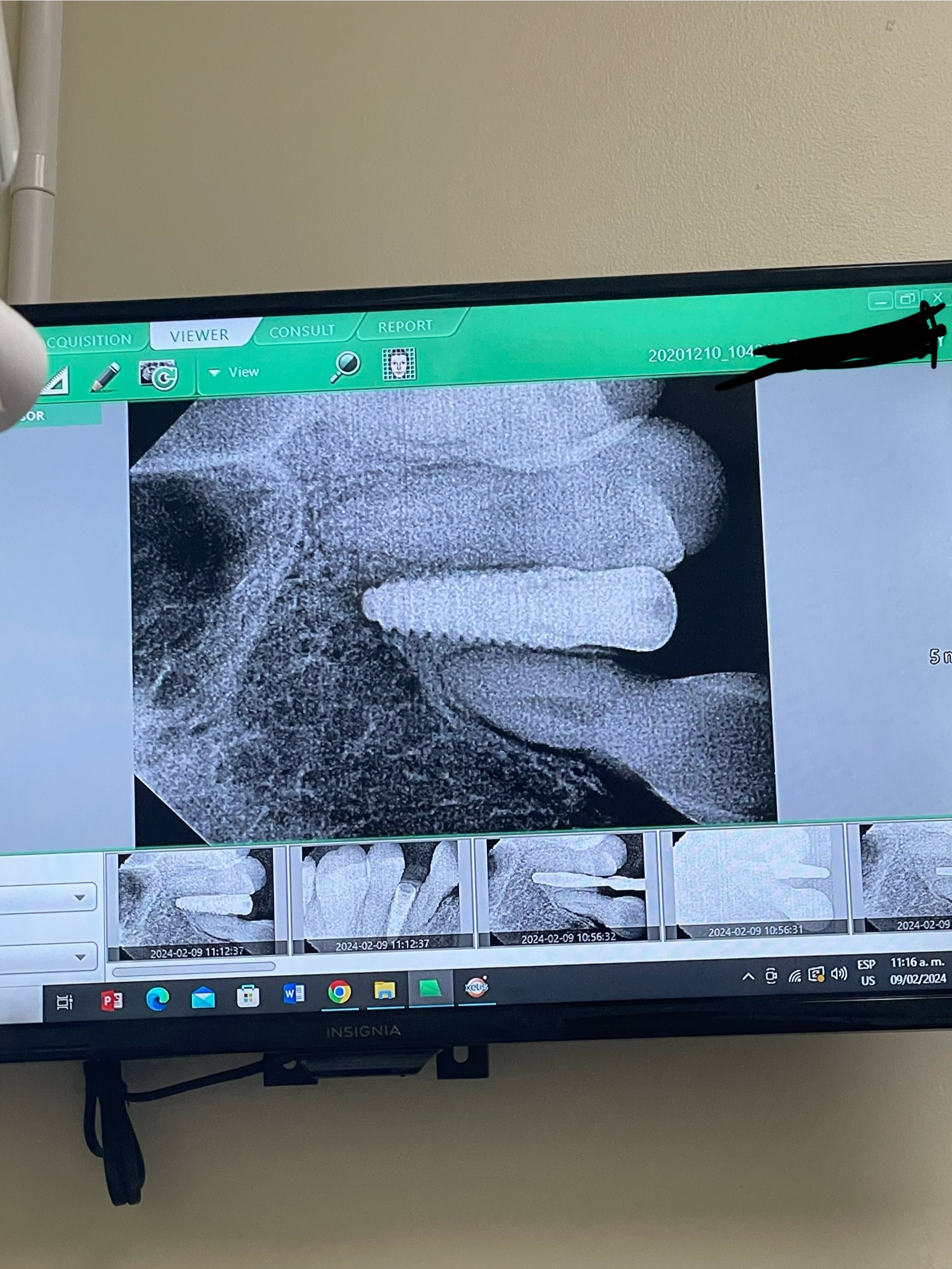Are these implants restorable?
A female patient 61y old came in a year ago with severe periodontitis in the lower frontal teeth. All the remaining teeth were extracted (six of them), and 4 dental implants were placed in the extraction sockets, and primary closure was achieved. The patient had to travel abroad for a period of time, so we made a removable lower denture. Yesterday she came back to do the restoration phase. She did not report having any problems during the healing period. We opened the implants, placed the gingival healers and made intra oral x rays. We were surprised to see that there is a large resorption around all the implants. The resorption is more expressed around the two distal implants. The implants seem stable, and there are no signs of inflamation. What do you think? Are this implants restorable, and what prognosis do they have?







